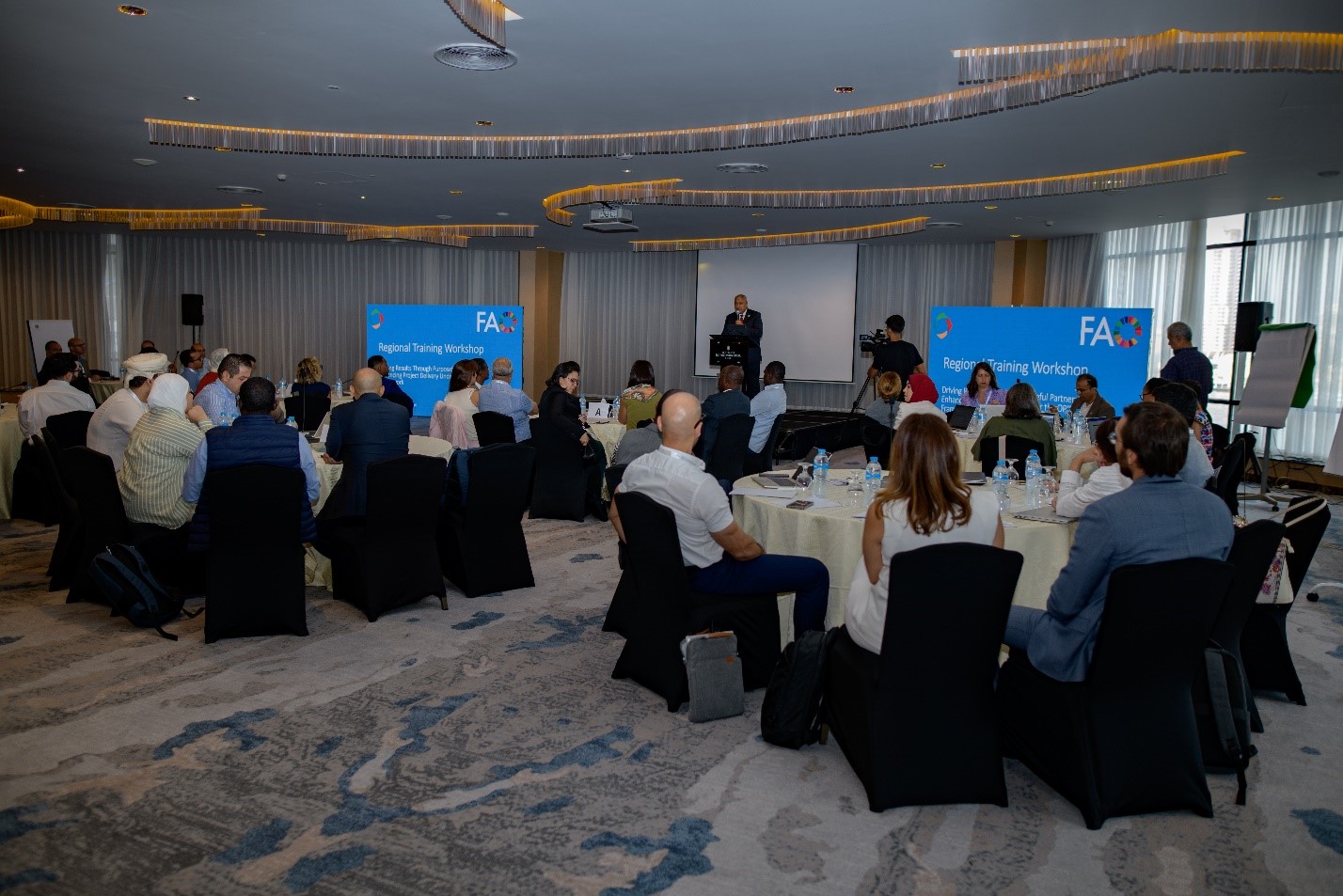RNE builds regional capacity for OPIM project delivery through purposeful partnerships

©FAO
The Food and Agriculture Organization of the United Nations (FAO) Regional Office for the Near East and North Africa (RNE), in collaboration with the Project Support Division (PSS) at headquarters, successfully concluded a three-day Regional Training Workshop on “Driving Results Through Purposeful Partnerships: Enhancing Project Delivery under the Operational Partners Implementation Modality (OPIM) Framework” from 21 to 23 July 2025 in Cairo, Egypt.
The workshop brought together around 60 participants from FAO Country Offices in Algeria, Mauritania, Morocco, Tunisia, Egypt, Jordan, Lebanon, Palestine, Sudan, Yemen, Syria, Iraq, Oman and Libya, as well as colleagues from the Subregional Office for North Africa (SNE) and RNE. Experts from PSS, the Finance Division (CSF), the Office of Strategy, Programme and Budget (OSP) and the Office of Biodiversity and Climate Change (OCB) joined as facilitators, providing both in-person and virtual support.
The OPIM, established in 2015, provides the framework for the transfer of FAO-managed funds to operational partners such as governments, I/NGOs, academia, and research institutions through Operational Partner Agreements (OPAs). This approach strengthens national ownership, builds institutional capacity, and ensures sustainability, while complying with international administrative and financial standards. In the RNE region, OPIM has grown from its first pilot in the West Bank and Gaza to a portfolio of 19 projects, transferring over USD 92 million to implementing partners. Projections for 2025 to 2027 indicate a further USD 155 million in OPIM projects, bringing the total portfolio value to an estimated USD 240 million.
“This growth reflects a high level of trust placed in us by our partners, but it comes with greater responsibility,” said the Abdul Hakim Elwaer, Assistant Director-General of FAO and the Regional Representative for the Near East and North Africa, in his opening remarks. “As OPIM expands, so do the risks, whether that be financial, reputational, or fiduciary. We must ensure that our country offices are equipped to manage these risks while maintaining the technical excellence that defines FAO.”
Over the course of the workshop, participants explored the OPIM framework and principles, discussed strategies for risk management, and examined the processes for partner selection, evaluation, and quality assurance. Sessions also addressed negotiation techniques, budget oversight for GEF and GCF projects, and the implementation of post-OPA monitoring and reporting. The training placed strong emphasis on interactive learning through simulation exercises and case studies tailored to real-life operational contexts.
The event delivered all planned sessions with high levels of engagement. Participants praised the open space for discussion, the opportunity to share country experiences, the inclusion of real-world examples, and the accessibility of HQ experts.
Participants had completed prerequisite online modules on project cycle management, procurement, risk management, and environmental and social safeguards, with successful completion recognized through you@fao certification. By combining technical training, peer-to-peer learning, and strategic discussions, the workshop has strengthened the ability of RNE and its country offices to manage an expanding OPIM portfolio, safeguard donor trust, and deliver impactful results in partnership with national stakeholders.
As Elwaer concluded, “This was more than a training. It was an investment in our teams, in our partnerships, and in our ability to deliver results that make a real difference for the people we serve.”
